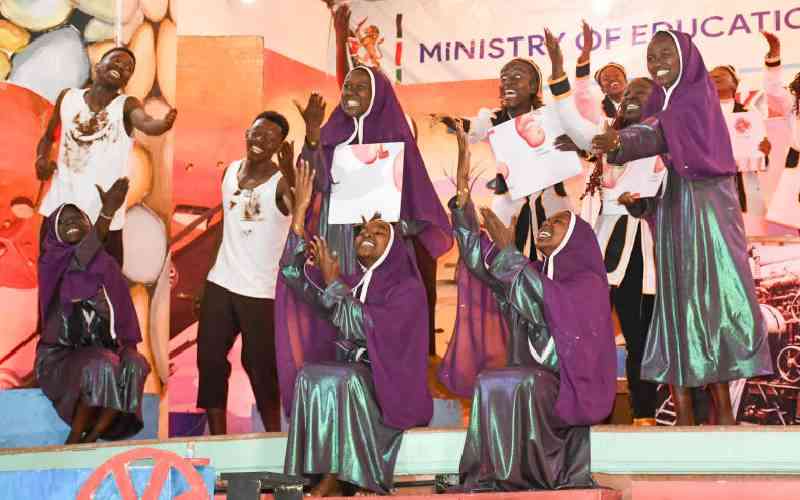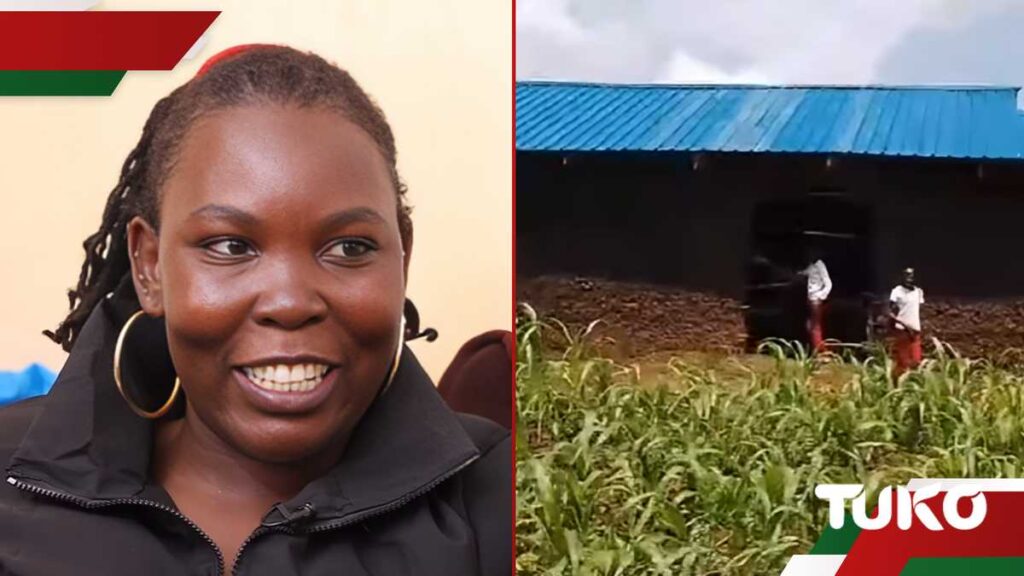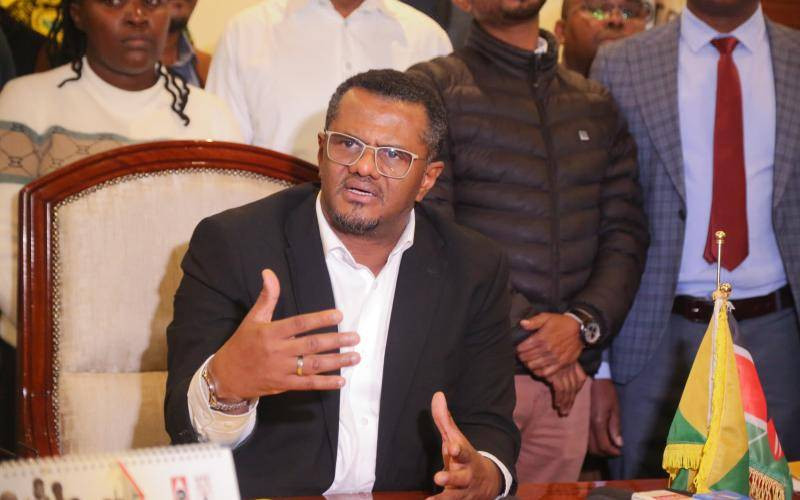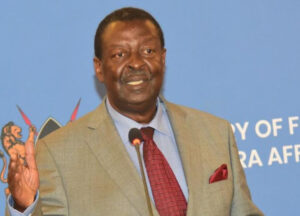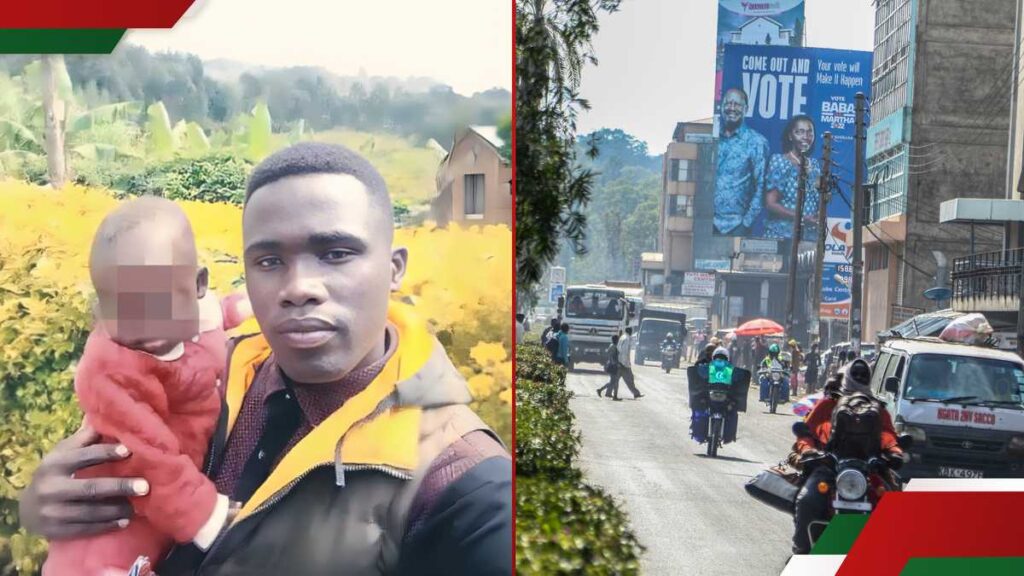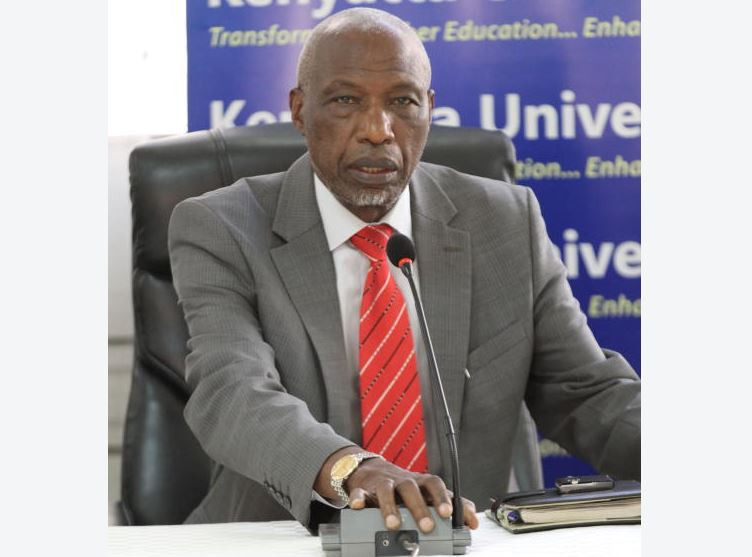The 63rd edition of the Kenya National Drama and Film Festival in Nakuru City will wrap up ahead of schedule.
Originally slated to run until April 18, the festival was restructured for an earlier conclusion, prompting adjudicators and officials to work through late nights and early mornings to review all the presentations.
Despite the tight schedule, organisers confirmed that the gala dinner will be held Monday, with the State Concert taking place two days later, on April 16, at State House, Nakuru.
Students delivered powerful performances tackling Kenya’s most urgent social issues.
On Sunday, among the standout performances was Makutano, a choral verse presented by students from the Kenya Institute of Mass Communication. The powerful piece tackled the devastating health impacts of unregulated gold mining—particularly its effects on fertility and birth rates in a fictionalised rural community.
The women are experiencing miscarriages, men are having fertility issues, and others are dying as a result.
The narrative opens with a haunting funeral scene: a pregnant woman being buried on a Thursday—one of many such ceremonies.
“Kila siku saa Tano tunazikana. Tumezika mara kumi,” the narrators said.
The story exposes a clandestine gold mining operation in Makutano that flouts national regulations by using toxic chemicals and discharging waste into rivers relied on by the local population. While the mine has created jobs, women—whose families bear the brunt of the consequences—demand its closure.

The presentation echoes real-life controversies from mining zones such as Taita Taveta, laying bare the double-edged nature of extractives. While mining can offer employment and infrastructure in its early stages, poor enforcement of policies like Kenya’s 2016 Mining Act can lead to devastating public health outcomes.
In the narrative, women rise in defiance, calling for safer working conditions for their husbands, many of whom are also suffering from infertility. They demand a sanitary and regulated approach to mining in order to curb the alarming rise in miscarriages, illness, and death.
Writer Ronald Marotso said Makutano sheds light on many issues in the mining and extractives sector that are often overlooked.
“The narrative centres women as the visible faces of communities devastated by mining operations that flout regulations. Despite the existence of laws, their weak enforcement allows a tragic rise in fatalities, ultimately compelling the affected society to resist and demand change,” Marotso said.
According to Marotso, the narration illustrated a common pattern in numerous businesses extending beyond the extractive sector, where the health of communities is jeopardised by a failure to adhere to proper environmental guidelines.
Stay informed. Subscribe to our newsletter
“The root cause is simply greed.The suffering of communities doesn’t deter many businesses from continuing operations that jeopardise well-being through environmental negligence,” he said.
The performance closes on a hopeful note. The women of Makutano take matters into their own hands, developing a mercury-free method to extract gold from sand—culminating in a symbolic birth scene that represents innovation, survival, and renewal.

Bilha Wangare, one of the narrators, said,“As artists, it’s our duty to bring these stories to light. We use art to defend the rights of society. So much suffering stems from unchecked exploitation.”
Other performances at the festival also took bold aim at national issues.
Corruption in sports sector
Students from Shamberere National Polytechnic delivered a blistering indictment of entrenched corruption in Kenya’s sports leadership and its exploitative consequences on athletes in the country.
Through dynamic choreography and arresting visuals, their piece highlighted the frustrating reality faced by many talented individuals–disillusionment of athletes whose careers are stifled by greed, favouritism, and underinvestment.
Despite the wealth of talent across the country, the students portrayed a reality in which many athletes struggle to access basic resources such as quality training facilities, equipment, and support systems.
Meanwhile, Taita Taveta Technical and Vocational College tackled youth unemployment in a choral verse that resonated deeply.
Their narrative depicted the harsh plight of desperate graduates who, in the absence of viable opportunities, fall prey to fraudulent job-swapping schemes that exploit their vulnerability.
With powerful language, evocative visuals, and unflinching honesty, this year’s festival proved once again that Kenya’s students are not only storytellers—but frontline witnesses to the fractures in society. Their art calls out injustice, mourns neglect, and dares to imagine a different future.








